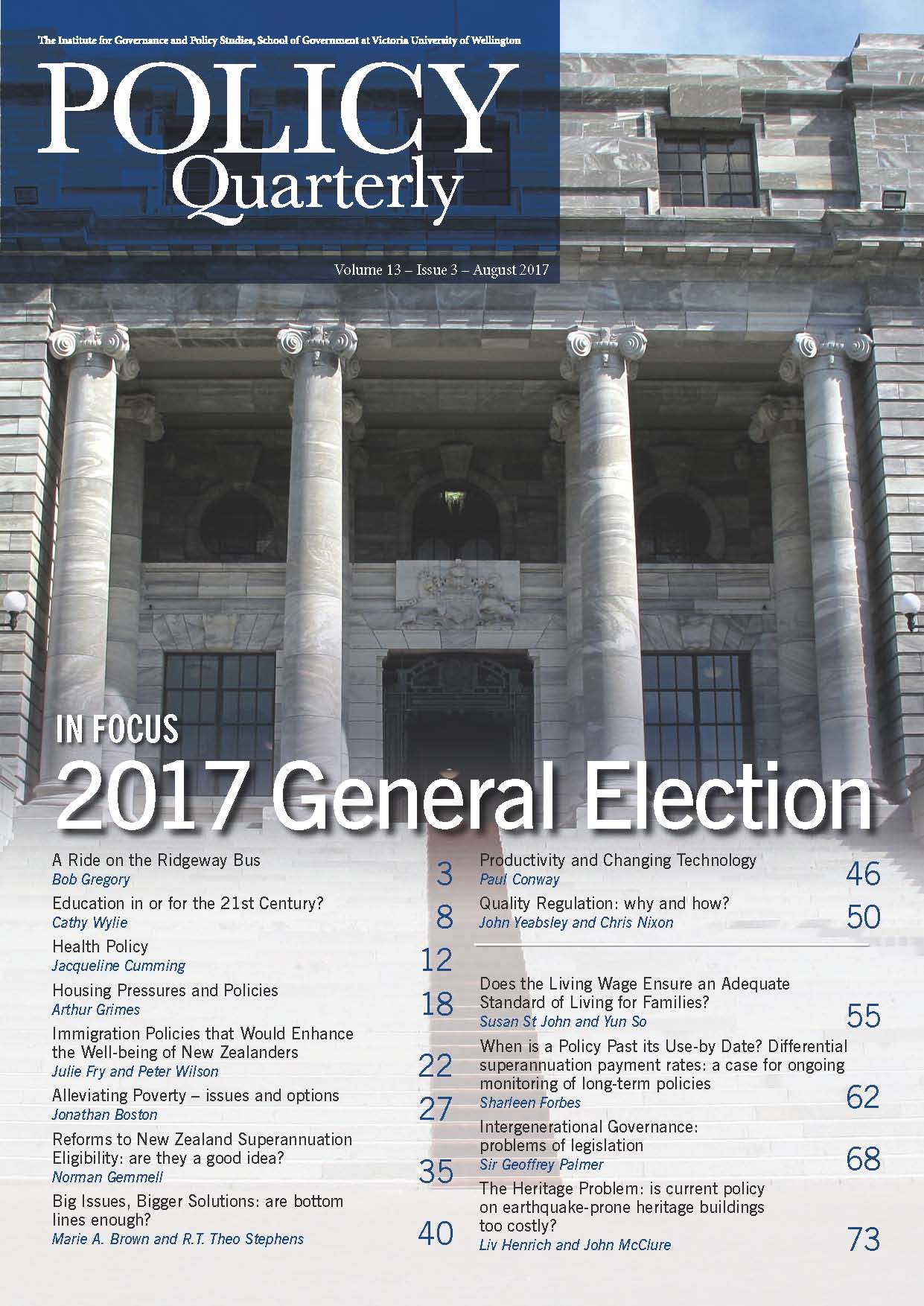Reforms to New Zealand superannuation eligibility: are they a good idea?
DOI:
https://doi.org/10.26686/pq.v13i3.4673Keywords:
New Zealand Superannuation (NZS), intergenerational equity, future fiscal affordability, raising the age of eligibility for NZS, population ageingAbstract
The National-led government of Prime Minister Bill English recently announced changes to the eligibility rules for receipt of New Zealand Superannuation (NZS). In 2037 the age from which New Zealand residents become eligible to receive NZS will begin to rise – by six months each year – from the current age of 65 to reach 67 by July 2040. Residency requirements will also rise, to 20 years from ten (five of which must be after age 50). This is a dramatic change for the new PM, who had been part of the previous Cabinet under Prime Minister John Key which, since 2008, steadfastly refused to consider changing the eligibility conditions for NZS. Treasury projected that without such changes the fiscal costs of NZS would rise from 4.8% of GDP in 2015 to 6.3% in 2030, reaching 7.9% by 2060 (Treasury, 2016).
Downloads
Downloads
Published
Issue
Section
License
Permission: In the interest of promoting debate and wider dissemination, the IGPS encourages use of all or part of the articles appearing in PQ, where there is no element of commercial gain. Appropriate acknowledgement of both author and source should be made in all cases. Please direct requests for permission to reprint articles from this publication to Policy-Quarterly@vuw.ac.nz.



